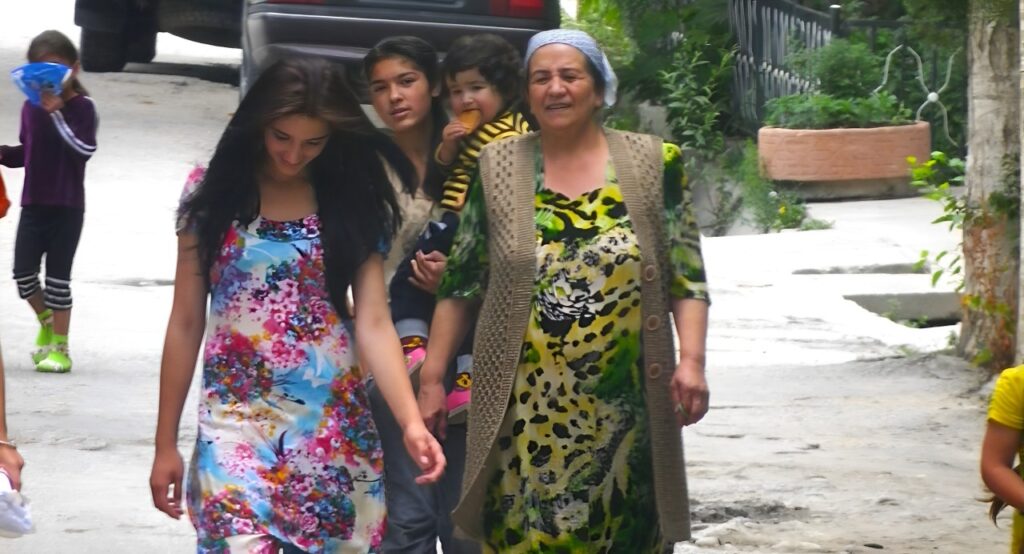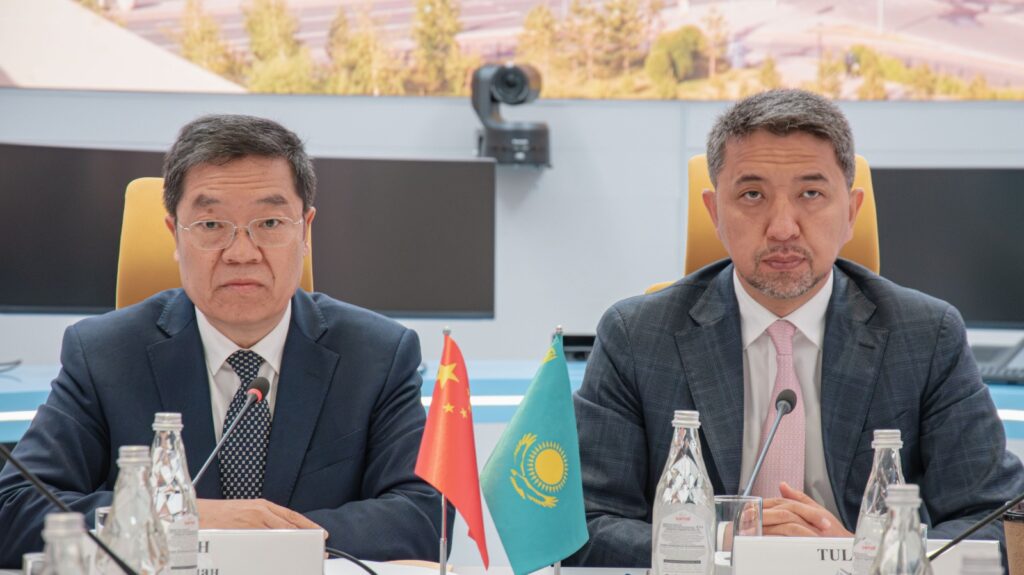In an ever-challenging world, volunteering is becoming a powerful tool to help and support people facing difficulties. In Tashkent, the capital of Uzbekistan, this activity has become increasingly important, uniting people who care about making the world a better place.
Kamilla Turakhodjaeva, a psychologist at the first children’s hospice in Uzbekistan and head of the volunteer initiative, Power of Kindness, shares her experience of the challenges faced by volunteers, the qualities required for such work, and how the state supports their noble efforts.
TCA: How long have you been volunteering in Tashkent, and what prompted you to engage in this activity?
Working as a psychologist at the first children’s oncology hospice in Tashkent since it opened in August 2022, I have long been attracted to the activities of various hospices elsewhere and realized that volunteers play a key role in the life of such institutions. These people give their time and energy to make the patients’ stay more comfortable and enjoyable. They provide a variety of recreational and educational activities, help celebrate holidays, and provide support to both the patients and their families. Thanks to volunteers, a hospice provides not only medical care, but also mental support and a place where patients can safely voice their concerns.
However, because many of us are intimidated by words such as hospice and cancer, it is not always clear how best to support and communicate with people facing such difficult situations.
The importance of good practice at a time when people are afraid and in need of attention spurred the organization of ‘Training in Hospice and Hospital Care.’ To date, four streams of volunteers who participated in the course have either stayed with the hospice or are offering their help to cancer hospitals and societies for people with disabilities.
The course covers important topics including skills in communicating with patients, the organization of workshops and how volunteers can take care of themselves to avoid ‘burning out.’
“The Power of Good” came about by chance, out of a desire to help improve our country’s treatment of those less fortunate than ourselves. All volunteers engaged in this initiative have completed a training course and are ready to offer their support in a way that will harm neither themselves nor others.
TCA: What areas or issues in the community have you chosen to volunteer in, and why are they important to you?
Our first task was offering help to medical facilities, but over time, we realized that we have the resources to help in other areas as well. We hold various educational workshops at the Millennium Society for people with disabilities. Many of the adult members are unfortunately, unable to secure official employment and earn a decent living. All the Millennium children are very talented and hardworking, and our task is to channel their abilities in the right direction. The girls knit toys, make jewelry and handmade soap, which we sell at Teplomarket fairs. Volunteers have now developed a course especially for them, aimed at promoting their personal brand. The project has already proved very successful and born from a humble idea, we now have a veritable store of Anastasia’s handmade soap!
In addition, we raise funds for surgeries and treatment. Thanks to kind-hearted people, we were able to cover the costs of surgery for six-month-old Gavhar as well as radiation therapy for Tatiana.
Over the ten months since we launched the initiative, we have held 25 masterclasses, participated in 4 fairs, distributed 21 ‘charity boxes’ of food to needy families and organized a charity concert. Modest numbers, but this is just the beginning.
TCA: What challenges have you experienced during your volunteer work in Tashkent? Can you provide any specific examples?
Volunteering has given me the gift of meeting many amazing charitable people. I know that there are many in our world who are ready to give their kindness and warm those who feel cold. It’s just that people don’t know how or where to realize it. My job is to connect these incredible people, highlight the areas where help is needed, and then watch the magic happen!
A year ago, I started with an idea. I really wanted to make palliative care in the city a little better. I realized that people deprived of their basic needs -food, clothing, safety- will never think about their psychological problems, so with volunteers in the city’s oncology clinic we began by improving living conditions. And it has now borne fruit!
TCA: What are the main goals of your volunteer work and what changes do you hope to achieve?
We strive to make volunteering an ordinary, natural phenomenon, where kindness does not arouse surprise or suspicion and instead, becomes a habitual part of our lives. Our goal is not just to help, but to introduce positive changes in society and improve the quality of life of those in need. We want to create an environment where everyone can feel supported and cared for, where kindness is the norm and help becomes a reality available to everyone.
TCA: What skills or qualities do you need to be a successful volunteer in Tashkent?
Volunteering takes many forms. Before signing up people for a course, I always ask what area a person is willing to help in, because everyone has their own personal story. Someone may wish to help because a loved one died of cancer whilst someone else, wants to earn pluses in karma. Others not ready for direct contact with the sick, may prefer to only participate in fairs; everyone has their own fears, desires, and motives. Not all volunteers stay on after the course to help in the hospice and oncology. This is understandable, and in no way condemnable.
All contributions are valuable, whether participating in fairs, conducting workshops, talking to beneficiaries, creating flyers and publications for social networks. No volunteer is less important than another. Just because you don’t have contact with people doesn’t mean you are doing an easier job and we have a number of ‘special’ volunteers with professional skills designated solely to creating websites, designs, research, auto-volunteering and so on.
Regarding communication with the beneficiaries, all you need is to open your ears and heart.
Our volunteers need to be responsible and show empathy, rather than pity towards our patients. But, of course, the most fundamental thing of all, is to love what you do.
TCA: How does volunteering affect your personal and professional life?
Life has become much more interesting! As the leader of the Power of Good initiative, I have additional responsibility, and being in charge, requires a lot of skills and abilities. I quickly realized that the job requires an organized and systematic approach whilst I tend to be more of a ‘firefighter’ who does everything at the last minute, albeit professionally. Allocating resources, delegating tasks and understanding the capabilities of each team member are all key aspects of successful leadership. I am comfortable with my inner chaos, but in our initiative there are about 50 people with different temperaments, rhythms, which must be taken into account. I like it, because this is how my personality is gradually forged, and I try very hard to be a worthy leader for our team.
TCA: What do you consider the main value of volunteering for Tashkent’s society?
In my opinion, the main value of volunteering is to create a caring society. If we have an opportunity to make someone’s life better, why not use it?
TCA: What has been the response of both the local community and the state to your initiatives and projects?
The private sector helps us a lot. No matter who we approach, everyone is happy to open their doors to us. The organizers of the Teplomarket fair allow us to sell our mentees’ products without charging rent. Rafael Mirovich, the founder of Ecocafé, gave us a room for a charity concert free of charge. All the performers and the compere also waived their fees. I am touched to the core every time people are willing to share. On behalf of our initiative, I want to thank everyone who helps us! Together we are strong!
TCA: What advice would you give to people who would also like to become volunteers or activists in Tashkent?
Try it once and you are sure to realize how wonderful it is to help others! You will get to meet interesting people, revise your own priorities, gain experience, and become a part of a truly great cause!
Remember that good begins with ourselves!








